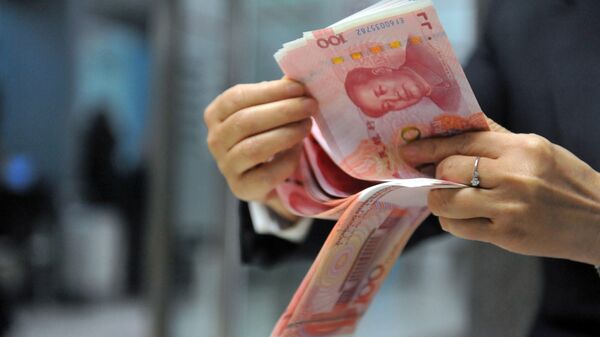Kristian Rouz — The recent pickup in Chinese consumer inflation, along with Beijing's steady progress on structural reform, has contributed to a rebound in oil prices, now above $40/bbl in London, and over $38.50/bbl of the other side of Atlantic. Stronger US demand for fuel, supported by persistently low prices at petrol stations, has further brightened the outlook for crude, yet, as the global oversupply of oil is still lingering, any hopes for sudden substantial increase in prices might be preliminary.
Improvements in the economic outlook for China, one of the world's biggest oil importers, helped propel prices higher. Another factor was a pickup is the US demand for fuel, potentially driving petrol retail prices higher, contributing to greater advances in US inflation and economic growth, and easing pressure on the disinvested energy sector in North America.
"The EIA numbers show that consumer demand from cheap oil is helping to rebalance the market, slowly but steadily," Angus Nicholson of the Melbourne-based IG Ltd. said. "Low prices are having an effect on output and it looks like the end of the $20 a barrel level."
US demand for petrol was at 9.33 mln bbl during past month, the Energy Information Administration (EIA) reported, whilst fuel supply dropped to 250.5 mln, and nationwide inventories added 3.9 mln bbl to 521.9 mln.
The data looks controversial, however, indicating there is little room for further advances in oil prices, at least on the US side of the market. Yet, the optimistic Chinese economic sentiment, if supported by macro data, might provide an additional boost to crude prices.
The renminbi posted its 2016 highest on Friday, indicating Beijing's involvement in the international war of currency devaluations might be over. Instead of striving for global trade competitiveness via devaluations within the old export-driven economic model, mainland China might have decided to stick to reform agenda, and limited success in the direction resulted in economic gains.
"It's all happening against the background of a very big move in the euro last night <…> Big jump in the euro/dollar last night (was) requiring a compensating move in the yuan," Ric Spooner of the Nwy York-based CMC Markets said.
"It's all happening against the background of a very big move in the euro last night <…> (with the) big jump in the euro/dollar last night requiring a compensating move in the yuan," Spooner of CMC Markets said.
Meanwhile, relatively low oil prices continue to affect producers across the globe. While oil-producing nations like Saudi Arabia are struggling with fiscal and/or FX rate implications, in the US, energy sector is still under severe pressure, persisting after the Third Avenue crash in December.
Jobs layoffs in oil small caps are in line, with Anadarko, Devon, and Chesapeake energy companies cutting spending on workforce and drilling/exploration. International oil giant BP continues decommissioning its oil derricks, with their oilrig count in Alaska having dropped to 2 from 5 active this year.


